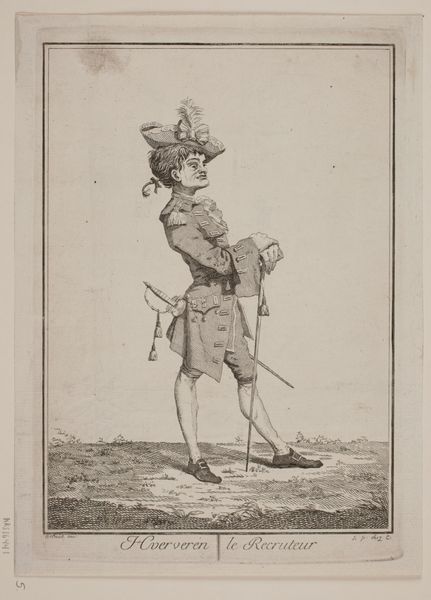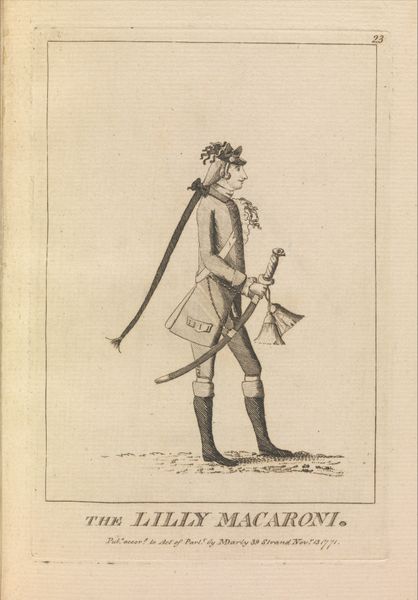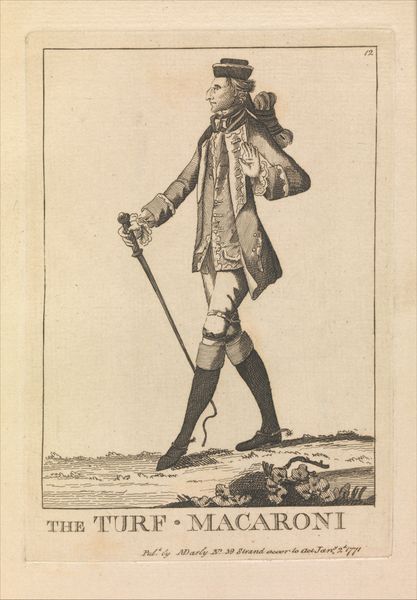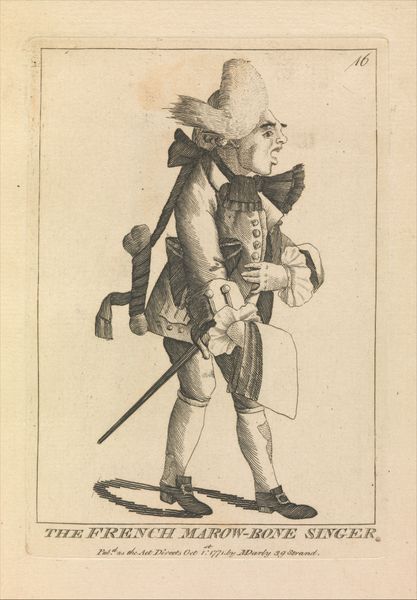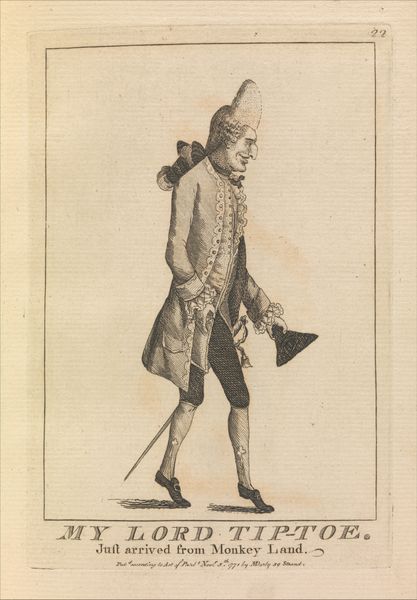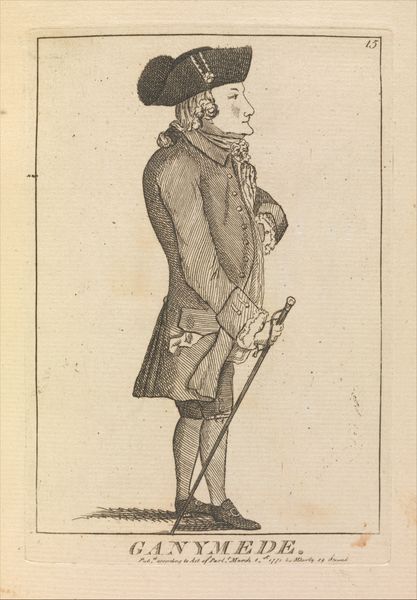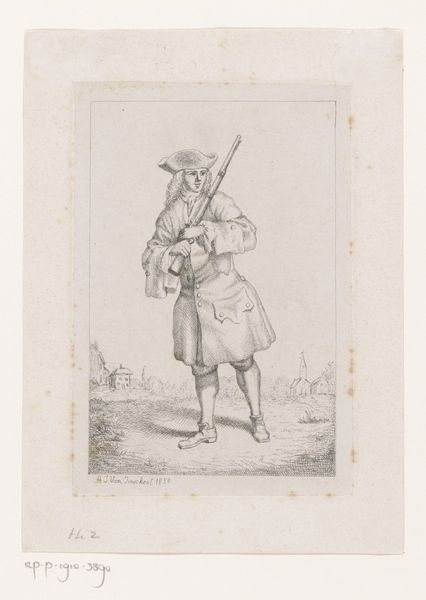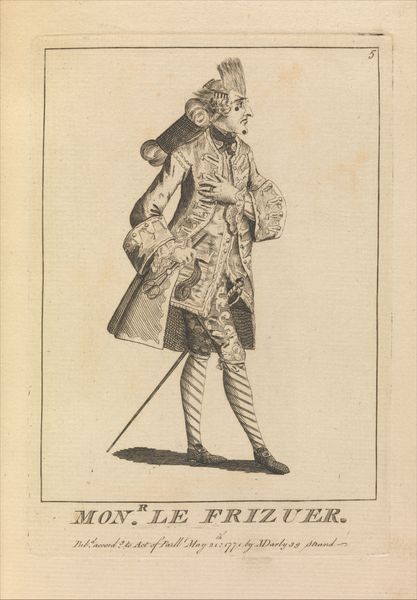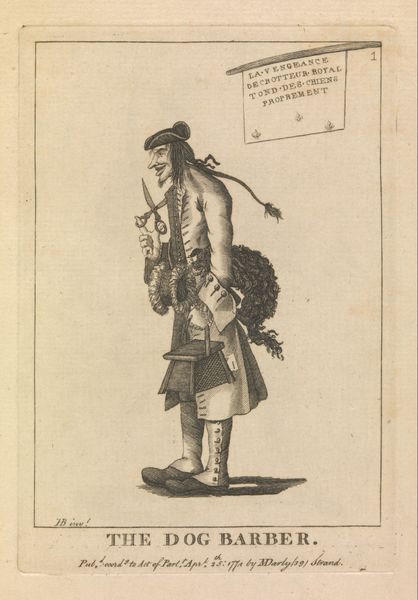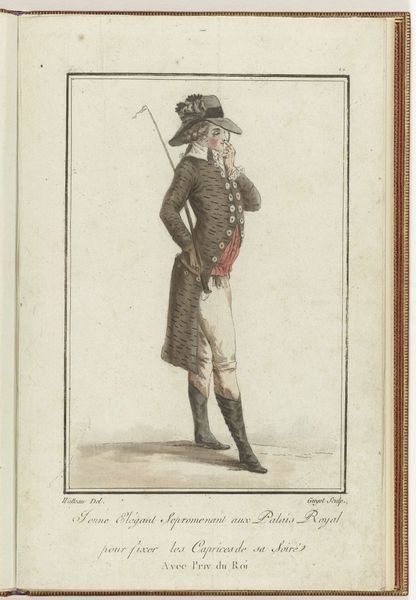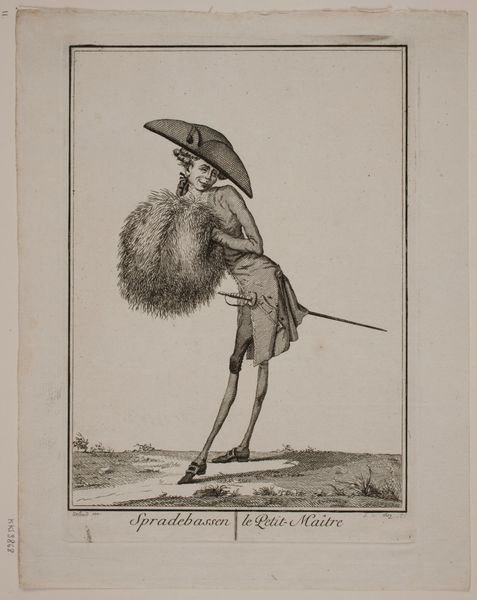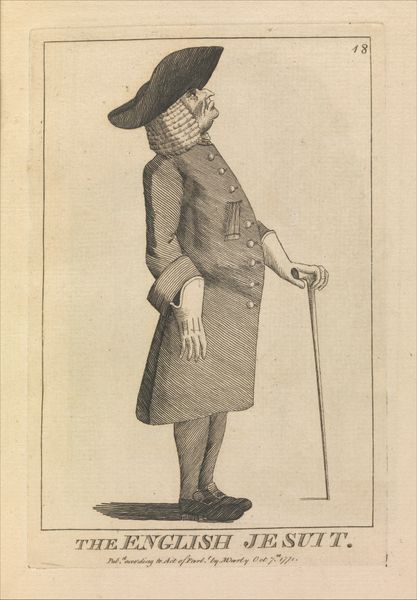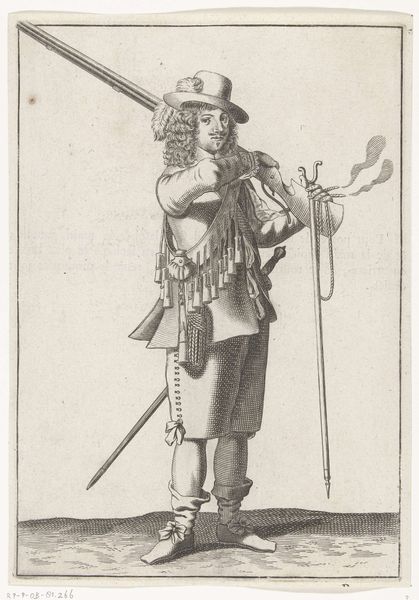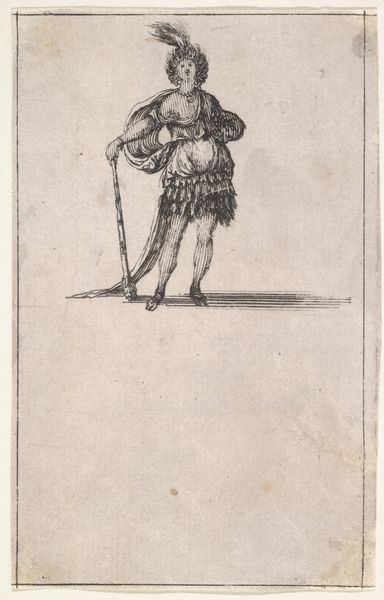
drawing, print
#
drawing
#
aged paper
#
toned paper
#
light pencil work
# print
#
pencil sketch
#
sketch book
#
personal sketchbook
#
idea generation sketch
#
pen-ink sketch
#
men
#
sketchbook drawing
#
sketchbook art
Dimensions: plate: 6 3/16 x 4 1/8 in. (15.7 x 10.5 cm) sheet: 8 13/16 x 5 7/16 in. (22.4 x 13.8 cm)
Copyright: Public Domain
Editor: We’re looking at “The Martial Macaroni,” a print by Matthew Darly from 1771, currently residing at the Metropolitan Museum of Art. I find the figure depicted somewhat satirical, especially given the title and the exaggerated fashion. How do you interpret this work within its historical context? Curator: It's astute to pick up on the satire. Darly's print participates in a broader visual culture critiquing masculinity and social identity in 18th-century England. The term "macaroni" itself was loaded, referring to men who adopted Italian mannerisms, fashion, and even speech – often seen as effeminate and thus a threat to traditional British values. This print, in particular, pokes fun at the perceived affectations of the military. Do you see how his garb can be read as humorous and contradicting his martial role? Editor: Yes, his enormous hair extension and decorative tassels seem rather impractical for a soldier. Is the artist suggesting a critique of the aristocracy perhaps, since military commissions were often purchased and not based on merit? Curator: Precisely. It highlights a concern that access to power and prestige was often based on wealth and social connections rather than skill or experience. Think about how such a figure would be perceived by different segments of society at the time. This print isn't just about one man's outfit, it's about anxieties surrounding class, gender, and national identity being negotiated in the public sphere. This era had evolving standards of representation which make this even more telling. Editor: That’s a completely different lens than I initially viewed the piece from. Thanks. Curator: It works both ways! Understanding your initial perception helps see how powerful imagery can shape a lasting visual dialogue across generations.
Comments
No comments
Be the first to comment and join the conversation on the ultimate creative platform.
